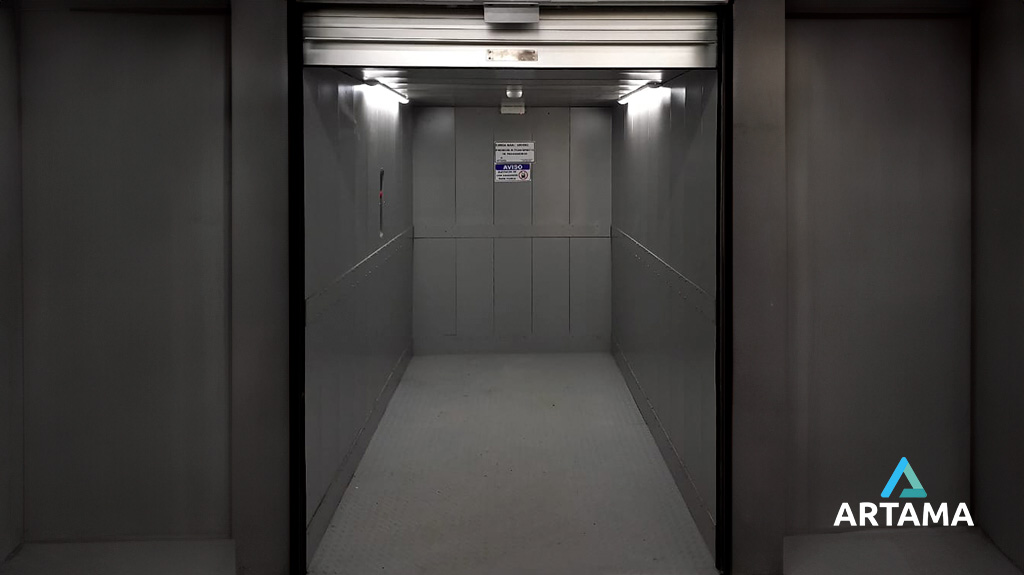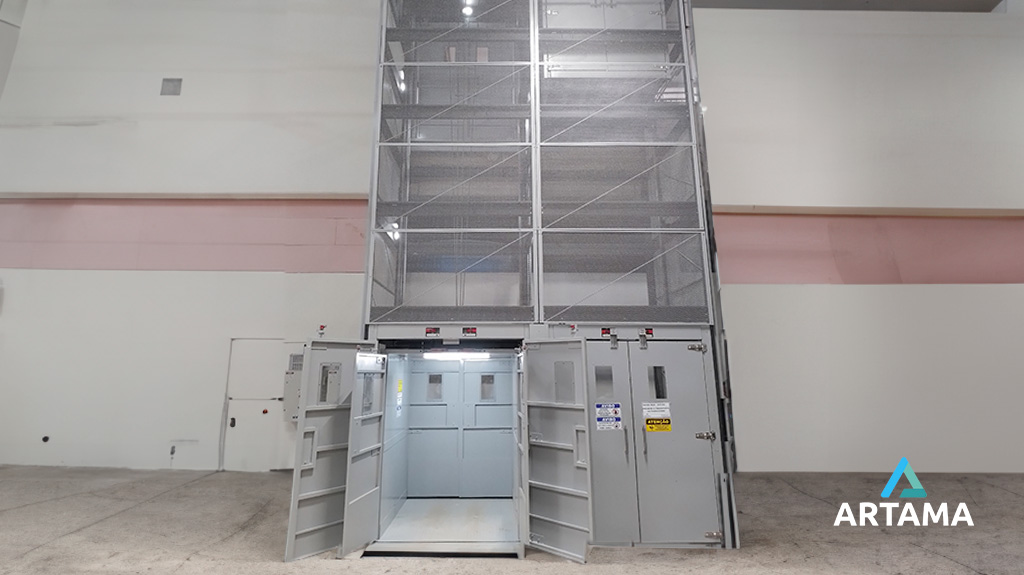Freight elevators are essential for the safe and efficient movement of materials, offering the necessary strength and quality for daily operations across various sectors. Unlike those designed for human transportation, these elevators must be robust and specifically suited to the type of load and transport they are intended for, adhering to ABNT technical standards to ensure safety and practicality.

These elevators are commonly found in industries, warehouses, commercial centers, parking facilities, supermarkets, and more. Their importance is evident for businesses that operate in multi-level buildings. By facilitating the movement of goods, they eliminate the physical strain and challenges associated with transporting items via stairs, thereby reducing the risk of accidents such as falls and material damage, while also protecting employees from injuries caused by physical exertion.
Moreover, freight elevators enable better space utilization, allowing companies to store goods in basements or upper floors efficiently. Installing a freight elevator in your business means investing in equipment with excellent transport capacity, supporting your team’s health and well-being, and ensuring quick and efficient customer service.
Freight elevators are categorized into three types:
Class A: Also known as service elevators, these elevators must not exceed 25% of the elevator’s nominal load capacity. Loading via motorized forklifts is not permitted, making them popular in commercial environments and service companies.
Class B: Designed for vehicle transportation, these elevators are commonly found in parking facilities and are capable of transporting passenger vehicles and trucks.
Class C: These elevators are used for transporting loads via motorized forklifts, which must not exceed 50% of the equipment’s nominal load capacity.
Regardless of the type or model of freight elevator chosen, it is crucial to work with a specialized company that can maintain these systems in optimal working condition.



